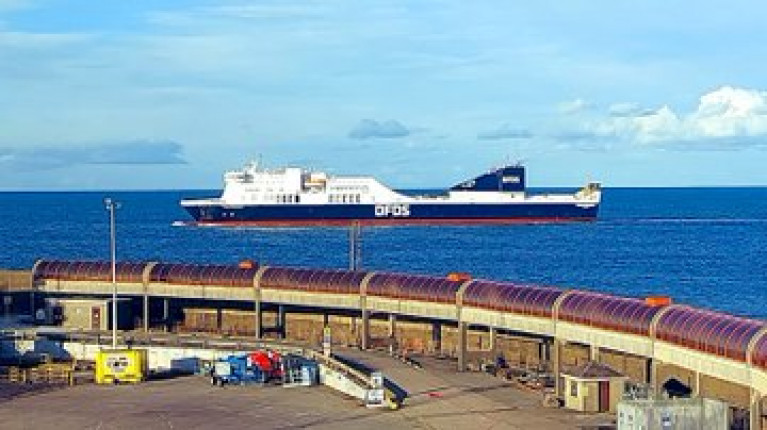Displaying items by tag: Latest freightferry
Regina's Rosslare Europort Debut Boosts Brexit-Buster Capacity by 30% on Ireland-EU Route
Regina Seaways is the latest freight-only ferry to serve DFDS Rosslare Europort-Dunkirk 'Brexit-buster' route, having this month begun service on the direct link to the continental mainland, writes Jehan Ashmore.
The debut of Regina Seaways further increases capacity to 30% on the Ireland-France route which is operated by the Danish shipping and logistics company.
In addition with the introduction of Regina Seaways, having replaced Kerry, brings a new timetable where the ropax along with the chartered-in Visby, which also has a higher speed, will reduce passage times.
The changed DFDS timetable means that instead of three vessels running simultaneously, this is now reduced to these two freight-ferries.
Since the Ireland-EU route started more than 9 months ago, the route has employed several vessels to bypass post-Brexit Britain, thus enabling lorry drivers to avoid customs paperwork, restrictions and potential delays. Freight on the route also includes provision for un-accompanied trailers.
The DFDS owned Optima Seaways which launched the inaugural sailing on 2nd January, also saw another fleetmate, Ark Dania employed on the route, though both vessels have move on. The former Afloat tracked with a return to the Baltic Sea while the latter vessel is in Greek waters.
Regina Seaways marks the seventh ship so far to serve the route, whereas with exception of the DFDS pair, the rest of the vessels were all chartered-in.
The charters involved Drotten (sister of Visby) which came from Swedish operator, Destination Gotland, Kerry from Stena RoRo and Pelagos from French operator Méridionale.
























































